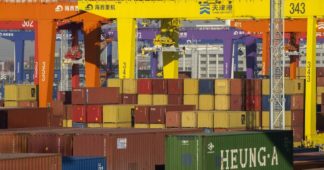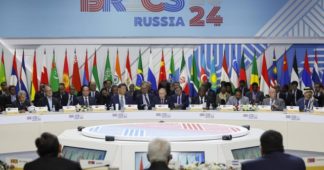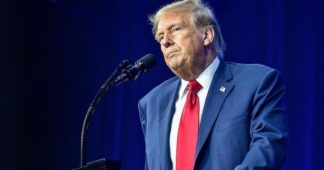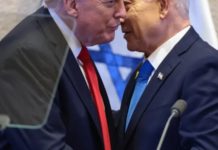Boris Perius Zabolotsky
Jul 30, 2025
The End of Illusions? Trump’s Tariffs and Brazil’s Next Move
Donald Trump’s unprecedented announcement of a 50% tariff on imports from Brazil came as a bombshell to the country’s political and economic elites and generated widespread repercussions in both Brazilian and international media.
The potential adoption of this protectionist measure will have severe consequences for Brazil’s manufacturing sector, particularly given that the United States represents the country’s second-largest trading partner, accounting for 12% of total national exports. Ironically, these are the very elites that have historically aligned themselves with Washington and, until now, had supported the ideological agenda of the American president. Even if Trump walks back his threats, as he has previously done in other cases, the damage to Brazil-US bilateral relations seems irreversible. Their political consequences may prove even deeper, as they offer Lula’s third term an opportunity to revive a shared narrative rooted in sovereignty and nationalism, while also seeking to strengthen ties with BRICS+ countries. Furthermore, these reactions may help consolidate a domestic consensus in response to American unilateralism.
Historically, two core vectors have shaped Brazil’s foreign policy toward Washington. The first is related to the constraints imposed by the United States over what it considers its “traditional sphere of influence,” namely Latin America. The second involves the political and ideological alignments between the two governments. These dynamics have had a direct impact on Brazil’s foreign policy and its strategic positioning vis-à-vis other economic and political partners. Contrary to initial expectations, it is widely acknowledged that the early phase of Lula’s third term was marked by a rapprochement with the Biden administration, as well as with some European Union countries. This approach is largely attributed to the fact that these governments neither supported nor recognised the attempted coup d’etat carried out by Lula’s opposition at the outset of his mandate.
For this reason, Itamaraty has shown considerable caution regarding a more assertive alignment with China, Russia, and other Global South countries. This cautious approach has manifested itself in several key policy decisions: Brasília demonstrated scepticism toward BRICS+ expansion, refused to join the Belt and Road Initiative, and avoided broader engagement in discussions about de-dollarisation and other sensitive topics within the group. This behaviour may reflect a perception among Brazilian economic elites and even inside of Itamaraty that preserving the country’s traditional alignment with the United States is preferable, due to concerns that deeper engagement with BRICS+ could trigger adverse reactions from Washington. More recently, this stance had even been celebrated domestically, as Brazil had not been subjected to the imposition of US tariffs on “Liberation Day.”
Trump’s recent decision to impose heavy tariffs on Brazil fundamentally altered this dynamic. While the American president had long maintained that BRICS+ posed a threat to dollar supremacy and US interests, it was during the Rio de Janeiro summit itself that he announced the potential imposition of tariffs on member countries. Even in this scenario, there were significant advances in the group’s summit, and the final declaration succeeded in advancing new agendas, particularly regarding artificial intelligence governance and Big Tech regulation.
It was against this backdrop that the tariff announcement surfaced. Unlike previous cases where such measures were justified by claims of trade imbalances unfavourable to the United States, Trump’s rationale for targeting Brazil was explicitly political and ideological. In this instance, the move represented a direct intrusion into Brazil’s domestic affairs, its judicial decisions and, more critically, in the upcoming presidential elections. Foreign policy rarely takes centre stage in the Brazilian public debate. Nevertheless, given the potential economic fallout, which includes increased unemployment, inflation, and rising interest rates, these impacts are likely to be felt tangibly by the general population. The Brazilian government can strategically leverage this scenario to explain economic challenges and place the blame squarely on the unilateral actions of the US. It also provides a chance to associate Trump’s administration with Lula’s major political adversary, former president Jair Bolsonaro. Several segments of Brazilian society have pointed out that Bolsonaro’s close ideological and political ties to Trump have severely damaged his reputation, especially in the wake of claims that he conspired with the Republican Party to impose these tariffs in an effort to “harm Brazil” and destabilise the current government. Ironically, the outcome was the exact opposite of what was intended.
We remind our readers that publication of articles on our site does not mean that we agree with what is written. Our policy is to publish anything which we consider of interest, so as to assist our readers in forming their opinions. Sometimes we even publish articles with which we totally disagree, since we believe it is important for our readers to be informed on as wide a spectrum of views as possible.











